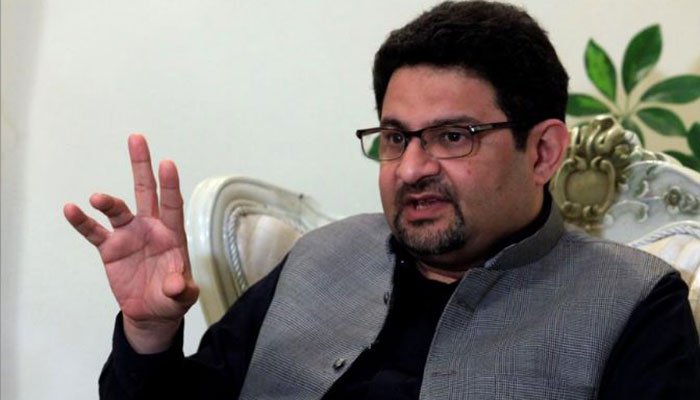US moves to put Pakistan on global terrorist-financing watchlist
February 13, 2018
ISLAMABAD: The United States has put forward a motion to place Pakistan on a global terrorist-financing watchlist with an anti-money laundering monitoring group, according to a senior Pakistani official.
A meeting of the Financial Action Task Force (FATF) member states is due to take place next week in Paris, where the organisation could adopt the motion on Pakistan. The FATF, an intergovernmental body based in Paris, sets global standards for fighting illicit finance.
Pakistan has been scrambling in recent months to avert being added to a list of countries deemed non-compliant with terrorist financing regulations by the FATF, a measure that officials fear could hurt its economy.
The United States has been threatening to get tough with Islamabad over militants, and last month President Donald Trump’s administration suspended aid worth about $2 billion.
Pakistan’s de facto finance minister, Miftah Ismail, told Reuters the United States and Britain put forward the motion several weeks ago, and later persuaded France and Germany to co-sponsor it.

"We are now working with the US, UK, Germany and France for the nomination to be withdrawn," Ismail said, speaking by telephone from Europe.
"We are also quite hopeful that even if the US did not withdraw the nomination that we will prevail and not be put on the watchlist."
Pakistan was previously on the FATF watchlist from 2012 to 2015.
Money flows
The FATF had previously warned Islamabad it could be put back on the watchlist without further efforts to crack down on the flow of funds to militants.
Pakistani officials and Western diplomats say that being put on the FATF watchlist could deal a blow to Pakistan’s economy as it would make it harder for foreign investors and companies to do business in the nuclear-armed South Asian nation.
“If you’re put on a terror watchlist, you’re made to go through all the (extra) scrutiny,” Pakistan’s former counterterrorism chief, Khawaja Khalid Farooq, told Reuters. “It can hurt the economy very badly.”
Officials also fear it would be harder and more expensive for Pakistan to borrow money from international debt markets if it was put on the FATF monitoring list.
Ismail said the FATF motion focused on Hafiz Saeed, whom India accuses of masterminding the 2008 Mumbai attacks that killed 166 people. That suggested the United States had put forward the motion at India’s behest, he said.
A spokesperson at the US Embassy in Islamabad said the United States was “absolutely not” acting on behalf of India.
State Department spokeswoman Heather Nauert said ”the US has consistently expressed our long-standing concern about ongoing deficiencies in Pakistan’s implementation of its anti-money laundering/counterterrorism finance regime.
“In addition to broader systemic concerns, this also includes Pakistan’s non-compliance with its commitments under UN Security Council Resolution 1267,” she added.
Resolution 1267 requires all states to freeze the assets of people and organisations on a list established by the resolution, including Saeed and his “charities.”
On Monday, Pakistan announced it had amended its anti-terrorism law to ban militant groups and organisations that are listed as “terrorists” by the United Nations, a move seen to be targeting those charities.
Pakistan’s attorney general, Ashtar Ausaf, told Reuters the law changes approved by the country’s president were meant to reflect obligations under the UN Security Council charter.
“We have to march with the changing times,” Ausaf said, adding that the new laws would enable the government to track fundraising activities of all the UN-proscribed groups and take punitive action such as freezing their assets.
'Makes no sense'
In December, Pakistan’s government drew up plans to seize control of Saeed’s Jamaat-ud-Dawa (JuD) and the Falah-e-Insaniat Foundation charities.
Washington and the UN say JuD and Falah-e-Insaniat Foundation are a front for the banned Lashkar-e-Taiba (LeT) militant group, which Saeed founded in 1987.
Ismail said Pakistan had already taken over some parts of Saeed’s organisations and that he believed other FATF nations would recognise Pakistan had made serious efforts to deal with militant financing.
He added that moves to put Pakistan on the FATF watchlist were counter-productive when the country was already undergoing “mutual evaluation” by experts from other countries, who are measuring progress in curbing illicit fund flows.
“It’s a very intrusive process and...we are happy to work with them, but while we are being given mutual evaluation, it makes no sense for us to be now put on the watchlist,” Ismail said.











